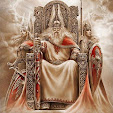Hygiene is a set of practices performed for the preservation of health. While in modern medical sciences there is a set of standards of hygiene recommended for different situations, what is considered hygienic or not can vary between different cultures, genders and etarian groups.
Some regular hygienic practices may be considered good habits by a society while the neglect of hygiene can be considered disgusting, disrespecful or even threatening. Sanitation involves the hygienic disposal and treatment by the civic authority of potentially unhealthy human waste, such as sewerage and drainage.
Medical hygiene pertains to the hygiene practices related to the administration of, and medical care, that prevents or minimizes disease and the spreading of disease.
Medical hygiene practices include:
- Isolation or quarantine of infectious persons or materials to prevent spread of infection.
- Sterilization or instruments used in surgical procedures.
- Use of protective clothing and barriers, such as masks, gowns, caps, eyewear and gloves.
- Proper bandaging and dressing of injuries.
- Safe disposal of medical waste.
- Disinfection of reusables (i.e. linen, pads, uniforms).
-Scrubbing up, had-washing, especially in a operating room, but in more general health-care setting as well, where diseases can be transmitted.
Most of these practices were developed in the 19th century and were well established by the mid-20th century. Some procedures (such as disposal of medical waste) were refined in response to late-20th century disease outbreaks, notably AIDS and Ebola.


























